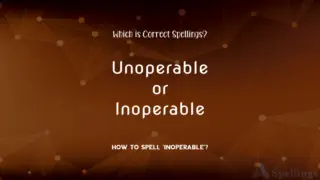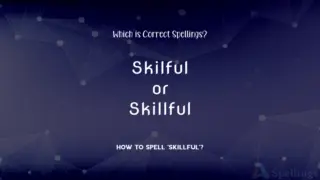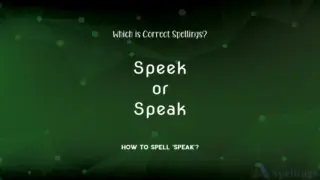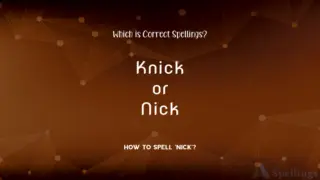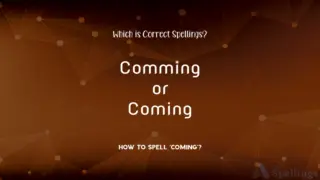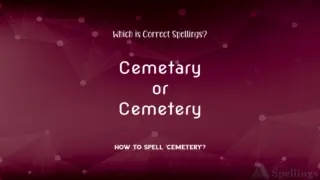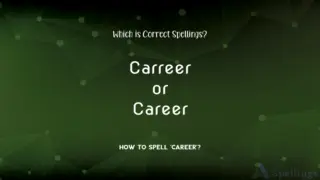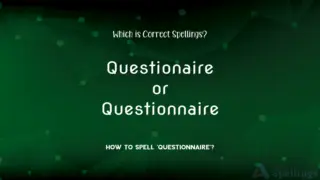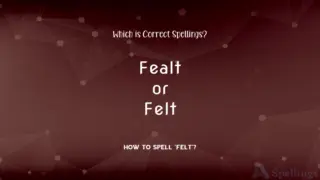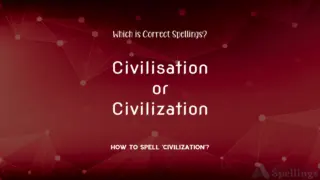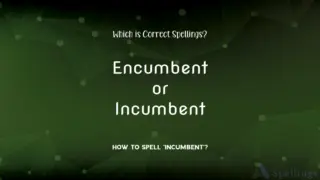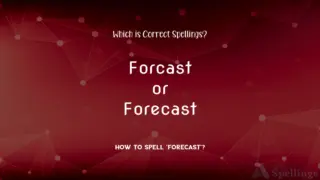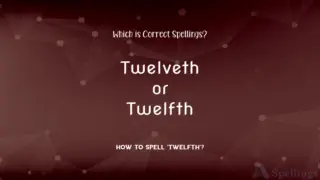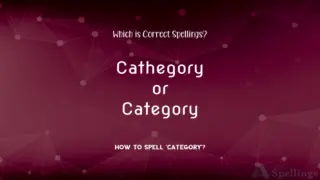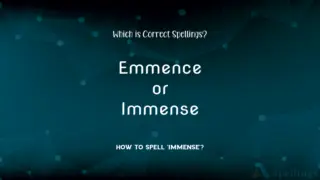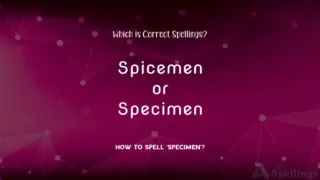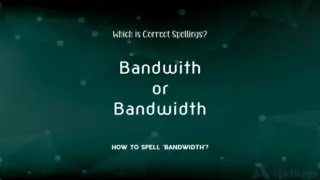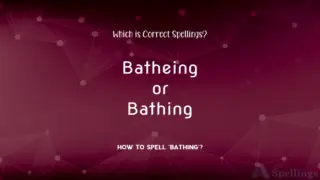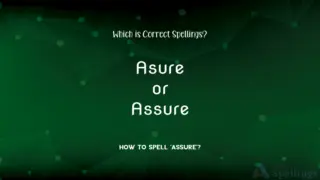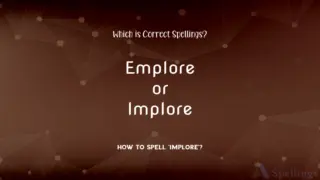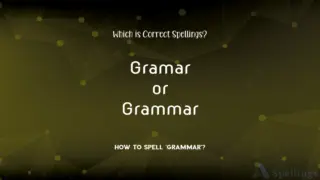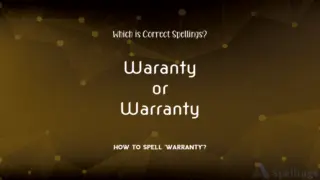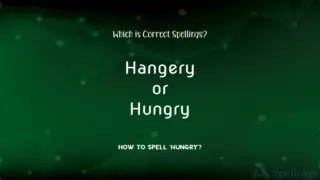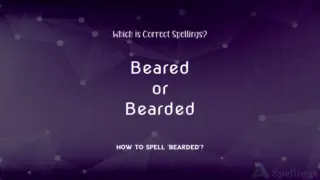Proove or Prove: Which is Correct Spellings?
The incorrect spelling is "proove," while the correct spelling is "prove." "Prove" means to demonstrate the truth or existence of something through evidence or argument.
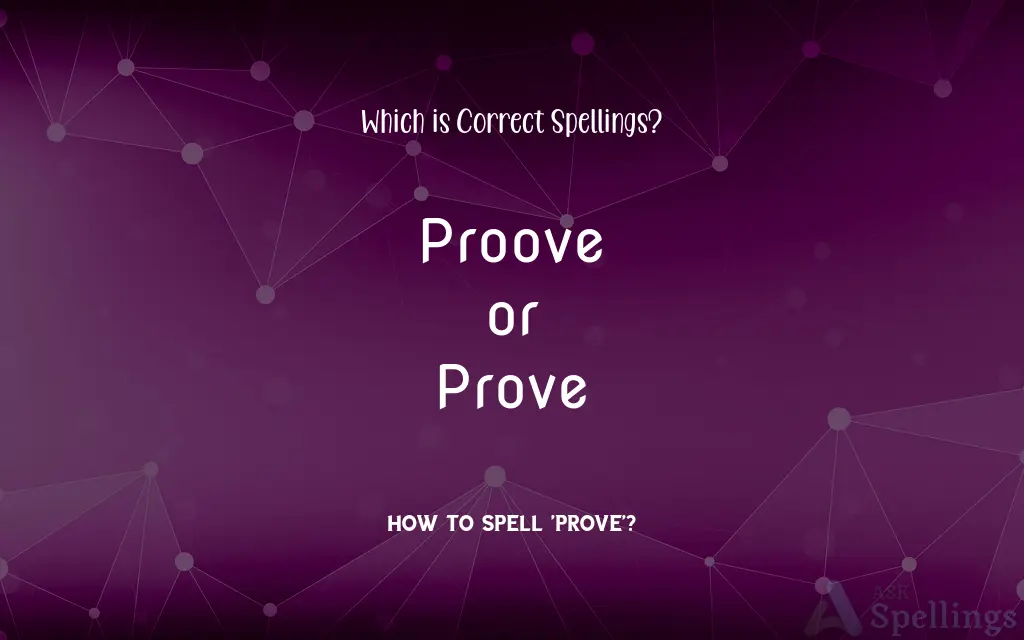
Which is correct: Proove or Prove
How to spell Prove?

Proove
Proove Spelling

Prove
Prove Spelling
Table of Contents
Is it Proove or Prove
Associate "prove" with "improve," which also contains 'prove.'
Remember, "prove" is shorter and more concise than "proove."
Think of "proove" as a common misspelling, with an unnecessary 'o.'
Link "prove" with "move," noting the similar 'ove' ending.
Recall that "prove" has the same vowel pattern as "rove."
How Do You Spell Prove Correctly?
Incorrect: I need to proove my theory is correct.
Correct: I need to prove my theory is correct.
Incorrect: She wanted to proove she could do it.
Correct: She wanted to prove she could do it.
Incorrect: He was eager to proove his innocence.
Correct: He was eager to prove his innocence.
Incorrect: Can you proove your point?
Correct: Can you prove your point?
Incorrect: They tried to proove their hypothesis.
Correct: They tried to prove their hypothesis.
Prove Definitions
To turn out to be, especially after a test or trial.
The new method proved effective in increasing yields.
To establish the truth or validity of something using evidence.
Scientists aim to prove their hypotheses through experiments.
To show oneself to be worthy or capable.
He proved himself to be a reliable leader.
To establish the genuineness or validity of something.
It's important to prove the authenticity of historical documents.
To demonstrate a particular quality, ability, or feeling.
The athlete wanted to prove her strength in the competition.
Prove Meaning in a Sentence
He hoped to prove his theory right.
The detective worked hard to prove the case.
She set out to prove her skills.
The experiment would prove the new concept.
He was determined to prove his point.
The athlete aimed to prove his endurance.
She wanted to prove her capabilities.
The test results would prove her hypothesis.
They had enough evidence to prove the claim.
He wanted to prove himself in the new job.
The artist wanted to prove his unique style.
The game was an opportunity to prove their strategy.
To prove her strength, she trained daily.
The trial was a chance to prove innocence.
The experiment aimed to prove a scientific law.
The victory would prove their team's talent.
The research was conducted to prove the theory.
To prove the solution, they performed multiple tests.
The audition was her chance to prove her talent.
He had to prove the algorithm's accuracy.
He was keen to prove his mathematical theorem.
The young scientist sought to prove her discovery.
She needed to prove her commitment to the project.
She hoped to prove her leadership skills.
The debate was her chance to prove her argument.
She worked tirelessly to prove her worth.
His actions would prove his loyalty.
To prove the point, he cited several examples.
He had to prove the effectiveness of the plan.
The successful launch would prove the rocket's design.
Prove Idioms & Phrases
Prove one's mettle
To show one's ability, especially in challenging situations.
She proved her mettle as a leader during the crisis.
Prove beyond a shadow of a doubt
To establish something with absolute certainty.
The evidence proved beyond a shadow of a doubt that he was innocent.
Prove a point
To demonstrate that one's argument or position is correct.
He worked extra hours just to prove a point to his boss about his commitment.
Prove the exception
To demonstrate that something does not follow the general rule.
Her success in a male-dominated field proved the exception.
Nothing to prove
Having already demonstrated one's abilities or value.
With years of experience, she felt she had nothing to prove in her field.
Live to prove another day
To survive or continue in spite of difficulties, with the opportunity to succeed later.
Though he lost this match, he'll live to prove another day.
Prove oneself worthy
To demonstrate that one deserves respect, attention, or a particular position.
The young athlete proved himself worthy of a place on the team.
Prove fruitful
To yield good results; to be productive or successful.
Their collaboration proved fruitful, resulting in a groundbreaking discovery.
Time will prove
The truth or effectiveness of something will be revealed in the future.
Time will prove whether the new policy is effective.
Hard to prove
Something that is difficult to demonstrate or establish as true.
Her theory was intriguing but hard to prove.
Prove a hard nut to crack
To be difficult to understand or solve.
The mysterious code proved a hard nut to crack.
Prove one's worth
To show that one is valuable or has good qualities.
She took on the challenging project to prove her worth.
To prove too much
To argue excessively to the point of undermining one's position.
In trying to justify his actions, he proved too much and raised suspicions.
Prove an old adage
To confirm that a traditional saying or belief is true.
His comeback in the game proved the old adage, 'It's not over till it's over.'
Prove your salt
To show one's worth or competence.
In his first year, the new teacher really proved his salt.
Prove your point
To successfully make your argument clear or valid.
After presenting the data, she had proved her point about the market trends.
Prove a theory
To demonstrate that an idea or hypothesis is correct.
The experiment was designed to prove a theory about behavioral psychology.
Prove yourself
To show one's abilities or worth through actions.
He saw the new job as an opportunity to prove himself.
Too difficult to prove
Something that is almost impossible to demonstrate as true or valid.
Her claims about the event were too difficult to prove without witnesses.
Common Curiosities
What is the pronunciation of prove?
Prove is pronounced as /pruːv/.
What is a stressed syllable in prove?
The entire word "prove" is the stressed syllable.
What is the verb form of prove?
"Prove" itself is a verb.
How do we divide prove into syllables?
Since prove has only one syllable, it is not divided.
Is prove an abstract noun?
No, "prove" is a verb, not a noun.
What is the root word of prove?
The root word of "prove" is from the Old French "prover," which comes from the Latin "probare" meaning to test or prove.
Is prove an adverb?
No, "prove" is not an adverb.
Is prove a vowel or consonant?
"Prove" is a word, not a vowel or consonant. It begins with the consonant 'p'.
Is prove a countable noun?
"Prove" is not a noun; it is a verb.
How many syllables are in prove?
Prove has one syllable.
Is prove a collective noun?
No, "prove" is not a collective noun.
Is prove a noun or adjective?
Prove is a verb.
Is prove a negative or positive word?
"Prove" is neutral; its connotation depends on the context.
Is the word prove Gerund?
The gerund form of "prove" is "proving."
Which vowel is used before prove?
The vowel used before "prove" depends on the context and the preceding word.
Is the word prove imperative?
"Prove" can be used in the imperative form, as in "Prove it."
What part of speech is prove?
"Prove" is a verb.
Why is it called prove?
It is called "prove" deriving from Latin "probare," meaning to test or establish the truth.
What is the singular form of prove?
"Prove" is a verb and maintains the same form in singular and plural contexts.
What is the first form of prove?
The first form of "prove" is "prove."
What is the plural form of prove?
The plural form of "prove" is the same as the singular: "prove."
Is the word “prove” a Direct object or an Indirect object?
"Prove" is a verb and does not function as a direct or indirect object.
What is another term for prove?
Another term for "prove" could be demonstrate, verify, or substantiate.
What is the second form of prove?
The second form (simple past) of "prove" is "proved."
Is the prove term a metaphor?
"Prove" can be used metaphorically depending on the context.
What is the opposite of prove?
The opposite of "prove" could be disprove, refute, or contradict.
Which determiner is used with prove?
As a verb, "prove" typically does not require a determiner.
What is the third form of prove?
The third form (past participle) of "prove" is "proven" or "proved."
How is prove used in a sentence?
Example: "She needed to prove her theory with solid evidence."
Which preposition is used with prove?
Prepositions like "to" or "that" can be used with "prove," depending on context.
Which conjunction is used with prove?
Conjunctions such as "and," "or," or "but" can be used in sentences with "prove."
Which article is used with prove?
Articles are not typically used with "prove" as it is a verb.
Share Your Discovery

Previous Spelling
Protestor or Protester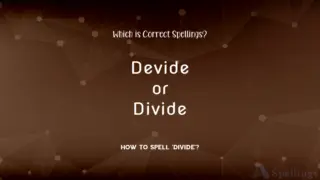
Next Spelling
Devide or Divide
